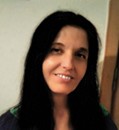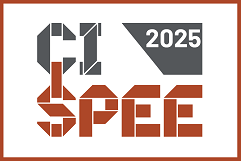WSIII.2 - Critical Minds in Action: AI-Enhanced Service-Learning and CBL in Engineering
Overview: Engineering education is evolving, demanding innovative methods that promote critical thinking, active learning, and real-world problem-solving. This 2-hour workshop explores the transformative role of Generative AI in advancing Service-Learning (SL) and Challenge-Based Learning (CBL) within engineering education. Generative AI, with its ability to simulate, predict, and create new information, offers unprecedented opportunities to revolutionize how engineering students learn and apply their knowledge. Educators can create immersive, interactive, and personalized learning experiences that promote critical thinking and problem-solving skills by integrating AI-driven tools into challenge-based learning and service-learning frameworks.
Participants will work in small, interactive groups to tackle pre-defined challenges using AI-driven tools and strategies. These hands-on activities will demonstrate how Generative AI can create immersive and personalized learning experiences, fostering collaboration, critical analysis, and creative problem-solving.
The workshop will begin with a brief introduction to theoretical frameworks and practical examples, followed by group-based activities designed to apply AI-enhanced methods in real-world educational scenarios. Attendees will explore challenges curated by the workshop organizers, engaging directly with tools to simulate, predict, and design innovative solutions.
By the end of the session, participants will gain practical insights into integrating Generative AI into their teaching practices, unlocking new possibilities for interactive and transformative learning experiences. This workshop aims to foster a collaborative environment for educators and researchers to share insights, explore opportunities, and shape the future of engineering education.

Celina Pinto Leão
Associate Professor at the University of Minho, Celina has been deeply committed to advancing engineering education, particularly in the curricular units of Applied Statistics and Numerical Methods. She has consistently incorporated innovative pedagogical approaches, including active learning methodologies, and recently embraced the potential of Generative AI to enhance learning. She is active in ethics, gender equity, and inclusion, and contributes to the Master's program board, promoting dynamic academic environments.

Anabela C. Alves
Associate Professor at the Department of Production and Systems, School of Engineering, University of Minho. She holds a PhD in Production and Systems Engineering and is a member of the ALGORITMI/LASI Research Centre. Her research interests include Lean Production, Planning and Control, Project Management, and Engineering Education, especially Project-Based and Problem-Based Learning. She has co-authored over 200 publications, including 4 books.

Sílvia Araújo
Sílvia Araújo is an Associate Professor at the Department of Romance Studies, University of Minho. Expert in Language Sciences and Digital Humanities, she leads multiple FCT-funded projects. Her work focuses on corpus linguistics, NLP, and AI in education. She coordinates the Master's in Digital Humanities and the related research group at the Center for Humanistic Studies, and promotes technology integration through accredited training at all educational levels.

Filomena Soares
Filomena Soares holds a degree and PhD in Chemical Engineering, and a MSc in Electrical and Computer Engineering. She is a researcher at the ALGORITMI Centre and teaches at the Industrial Electronics Department at University of Minho. Her interests include automation systems, biomedical process control, and the use of serious games and robotics in rehabilitation. She is active in research and the promotion of active teaching methodologies.

